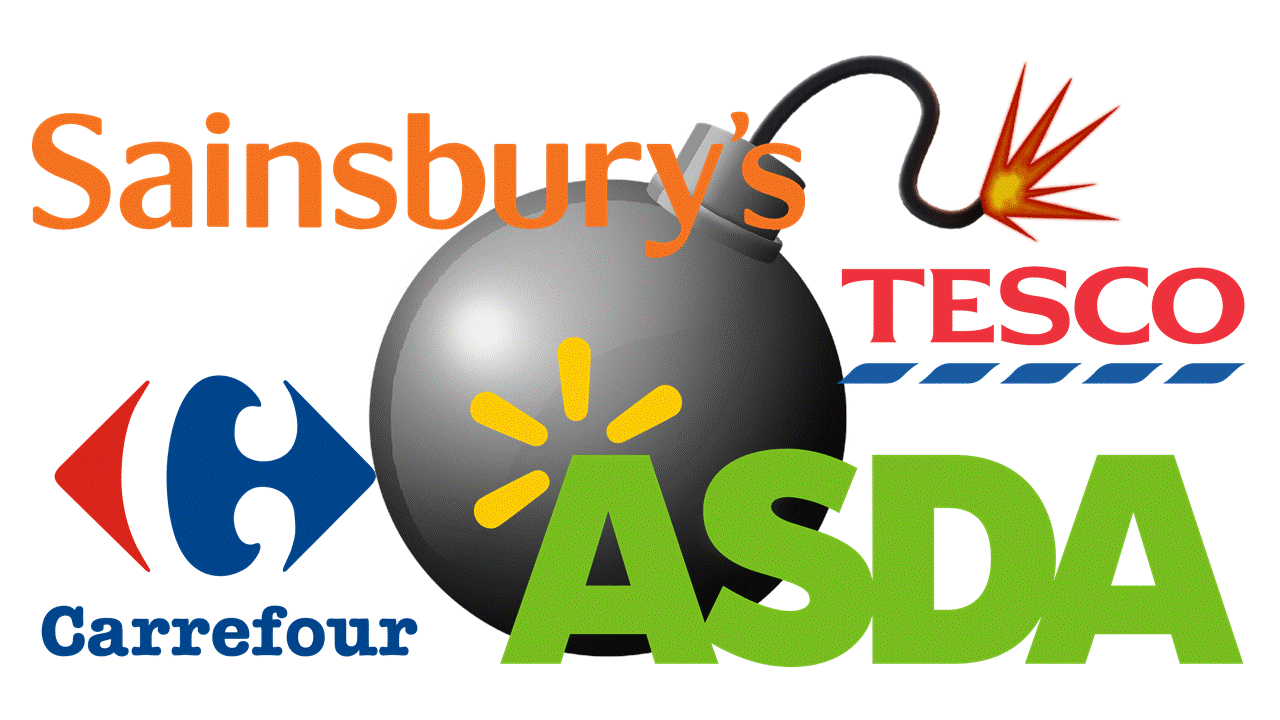Shopper Marketing has been buzzing for a while now. The number of articles, companies, expert individuals, consultancies and agencies has exploded. Yet what are we seeing on the ground, in the store? What has changed in the eyes of shoppers? Have shoppers been witness to the quantum shift in activity that a web search on “shopper marketing” would suggest? My experiences in stores recently would suggest that there is a huge gap between the hype and the delivery.
Tesco. Proctor & Gamble. PepsiCo. It should be a shopper marketing Hall of Fame. On a recent store visit it was, unfortunately far from it. And having just spent half an hour walking around a Carrefour in Shanghai, I’m beginning to worry that this is far from an isolated experience.
Tesco Extra. Warrington (North West UK for those of you who have never ventured outside the south). A very depressing experience. Not because it was raining, freezing, (and it’s supposed to be summer!) But here, in one of the stores of one of arguably the most successful retailers of the last two decades, I saw retailer, and manufacturer brands humbled. Something needs to change.
Little wonder people are going online to shop in droves. The place is cold and vacant like the warehouse it is, giving no warmth or love. The lady offering samples of Starbucks at the entrance smiles and jokes with shoppers, but the warmth seems to end there.
What is left is a lot of products, a lot of out ofstocks, a lot of discounts, and not much more. Millions of dollars are being poured into shopper marketing, and this is the best we can do? Despite the many heralded successes in the shopper marketing arena, there appears to still be a long way to go for all of us.
Case Study One: Biscuits – core brands unavailable.
 Elsewhere (in Sainsbury down the road actually) many leading biscuit brands are on promotional discount, but here a loyal shopper prepared to pay full price would have to leave disappointed, or perhaps with a competitor product as an alternative. There was a time when retailers demanded “on time, in full” of their suppliers as a basic foundation of the trading relationship. How come Tesco can’t seem to meet the same standard when it comes to their offering to shoppers? Note I’ve highlighted biscuits here – I started my career as a sales representative for McVitie’s in the UK and it was their parent company, United Biscuits that gave me many of my big career opportunities.
Elsewhere (in Sainsbury down the road actually) many leading biscuit brands are on promotional discount, but here a loyal shopper prepared to pay full price would have to leave disappointed, or perhaps with a competitor product as an alternative. There was a time when retailers demanded “on time, in full” of their suppliers as a basic foundation of the trading relationship. How come Tesco can’t seem to meet the same standard when it comes to their offering to shoppers? Note I’ve highlighted biscuits here – I started my career as a sales representative for McVitie’s in the UK and it was their parent company, United Biscuits that gave me many of my big career opportunities.
It just breaks my heart. I could have picked many other categories to highlight the story.
 Case Study Two:
Case Study Two:
What does this do for your brand, P&G?
Perhaps it’s because P&G were just in the process of disposing of the Pringles brand to Kellogg’s – perhaps they had taken their eye off the ball? Displays like this used to be reserved for the cheapest, unbranded rubbish. But P&G, apparent “Shopper Marketing Gods” – this is what your brand looks like in Tesco, in Warrington, on a Thursday in May. Fancy campaigns dreamt up in agency offices will have to work very hard to overcome the image of cheap and unwanted that this type of execution creates. I’m sure P&G had nothing to do with it, but surely isn’t that the point?
 Case Study Three – Pepsico – How could you?
Case Study Three – Pepsico – How could you?
More of the same I’m afraid, this time it’s Walker’s, owned by marketing giant Pepsico. How many brand impressions does this create? Would you want a Facebook relationship with this? Enough said.
Case Four – I’m not picking on anyone (in particular)
I have no agenda – I’m not picking on P&G or PepsiCo, though to be honest I do hold these guys to higher standards. Everyone is at it. Scouring the shelves it was hard to find anything beyond discount, any essence of brand building. The message was simple. Brands – Cheap. Tesco, PepsiCo, Proctor & Gamble, everyone. Come on, there is so much more we can do.
Shopper Marketers need to step up to the plate. We need to take accountability for our brands and what happens to them. Shoppers shop every day. Shopper marketing isn’t about big events and campaigns. Shopper marketing is about being the guardian of the brand just as much as consumer marketing is. We must marshal the relationship between shoppers and the brand and protect it from any harm.
Time to step up and own our brands, own shoppers, and own the relationship between the two. Nice campaigns are not enough.





